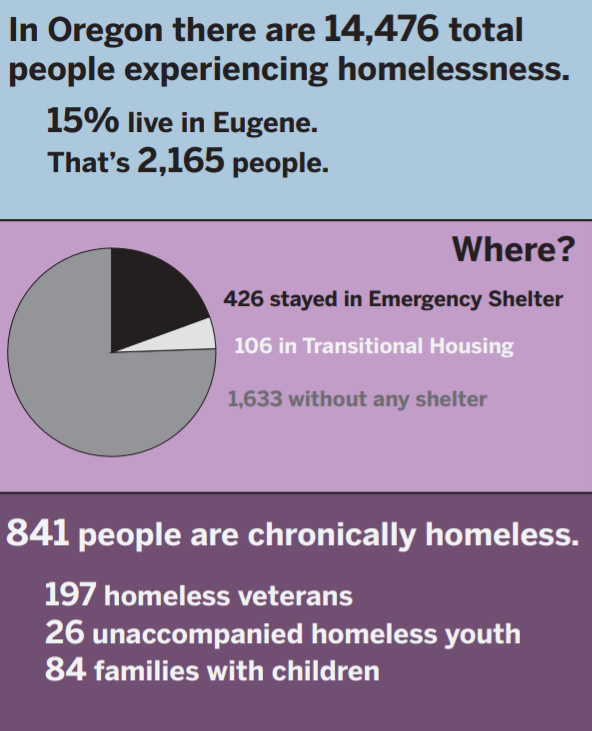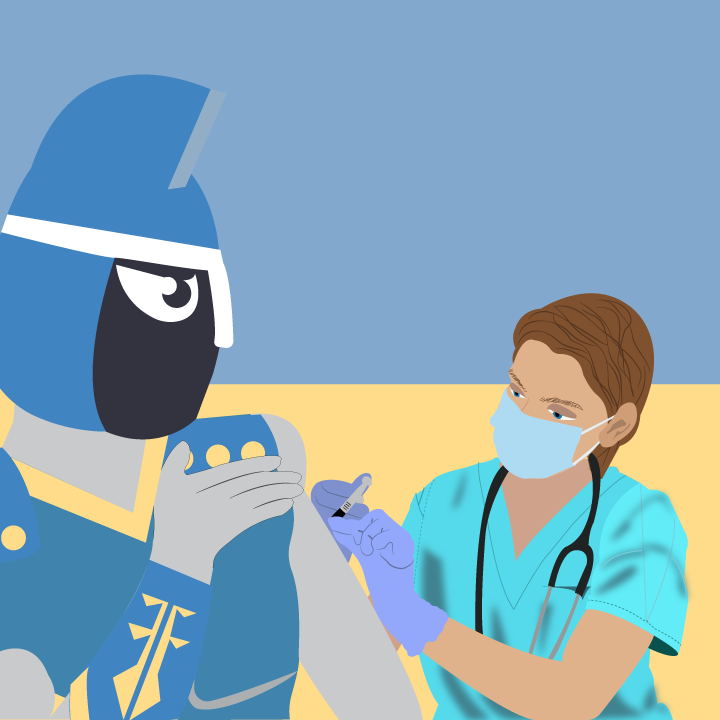The city’s push to stop homelessness numbers from rising
Eugene has homelessness issues.
According to Security.org, a website that collects homelessness data on each state, Oregon is the seventh-highest with over 14,000 people experiencing homelessness overall. Oregon places fourth in the country with a rate of 350 per every 100,000 people experiencing homeless. The state has also seen a 14% increase over five years, a rate that is predicted to increase.
That’s just Oregon.
Out of all the major cities, Eugene has the nation’s highest rate of homelessness at 432 people per 100,000, with a 12% increase over the last five years.
Out of all the people who experience homelessness in the country, 90% are over the age of 24, of which 70% are men and 30% are women.
“It may be surprising to learn that families who stay in sheltered locations account for 30% of the total homeless population in the U.S.” according to Security.org on the resources page.
One reason for this situation is because of the lack of permanent housing in Eugene, stated in the Lane County Final Report for 2019. Many in the homeless population have mental health issues or drug abuse problems. Both of these don’t allow people to focus on obtaining a permanent residence. It can also be difficult for some to get a job because of the fact they might have a criminal record.
Local government and nonprofit organizations have provided several solutions to combat the issue. On Eugene’s official website, some of the safety and precaution measures are seen taking effect.
One of these — the community court program — “promotes responsibility in participants through a combination of supervised community service and direct connections to social service providers,” states on the Eugene government website. This program is used for those who have been charged with nonviolent crimes. Allowing them to have the choice to integrate themselves back into society by volunteer work and having the ability to access other resources.
The Crisis Assistance Helping Out on the Streets, or CAHOOTS, provides support through non-emergency methods in dealing with situations that help homeless individuals and families with referrals, basic information on resources, creating better bonds and finding housing. They also provide medical assistance.
The Community Outreach & Response Team, or CORT, has partnerships with the Eugene Police Department and with White Bird — an organization that allows homeless people to take back control of their lives through medical, social, and other services.
Eugene’s City Council, among other efforts, plans to purchase a “structure to be used as a low-barrier emergency shelter” with a budget of $1.9 million. The budget will also allow the creation of a specialized team and emergency fund.



